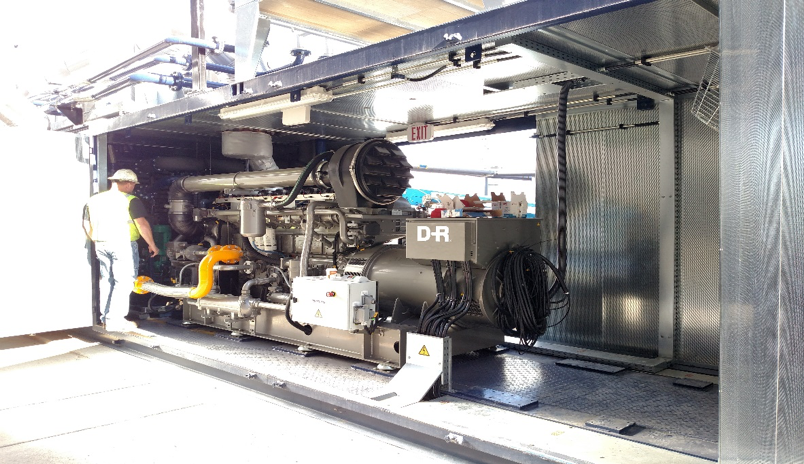ELECTRIC CO-GENERATION
- Design Engineering- Thermal Load Configuration- Project Financing- PPA Agreements
Ending Wasteful Power Plant Processes
A conventional power plant makes electricity by an inefficient process. Fossil fuel such as oil, coal, or natural gas is burned in a giant furnace to release heat energy. The heat is used to boil water and make steam, the steam drives a turbine, the turbine drives a generator, and the generator makes electricity.
Innovation Energy Group knows that the trouble with this process is that energy is wasted in every step of the process—sometimes quite spectacularly.
For example, the water that's boiled into steam to drive the steam turbines must be cooled back down using giant cooling towers in the open air, wasting huge amounts of energy—much of which literally disappears into thin air!
Now, a fuel-driven power plant must work by heating and cooling—that's what the laws of physics say—but surely, we don't have to waste quite so much energy in the process, do we?

Saving With Combined Heat and Power (CHP) Generation
Instead of letting heat escape uselessly up cooling towers, why not simply pipe
it as hot water to absorption chillers for process heat or refrigeration?
That's essentially the idea behind CHP: to capture the heat that would normally be wasted in electricity generation and supply it to a thermal process in a manufacturing plant or office building.
Where a conventional power plant makes electricity and wastes the heat it makes as a byproduct, a CHP power plant makes both electricity and hot water and supplies both to end users.
Co-generation (the alternative name for CHP) simply means that the electricity and heat are made at the same time.
Identifying and Addressing Missed CHP Opportunities
At IEG, we recognize the opportunity for successful CHP projects based on an extensive criterion of variables in your plant operations.
When we believe that an opportunity exists for such a substantial investment, we then initiate a feasibility study into the economic opportunity that may or may not be present.
Projects that proceed typically have a minimum thermal load of 35% of total energy consumption and a total electric
cost that is greater than $0.09 per kWh.
FREE Estimates
Call 803-205-0810
